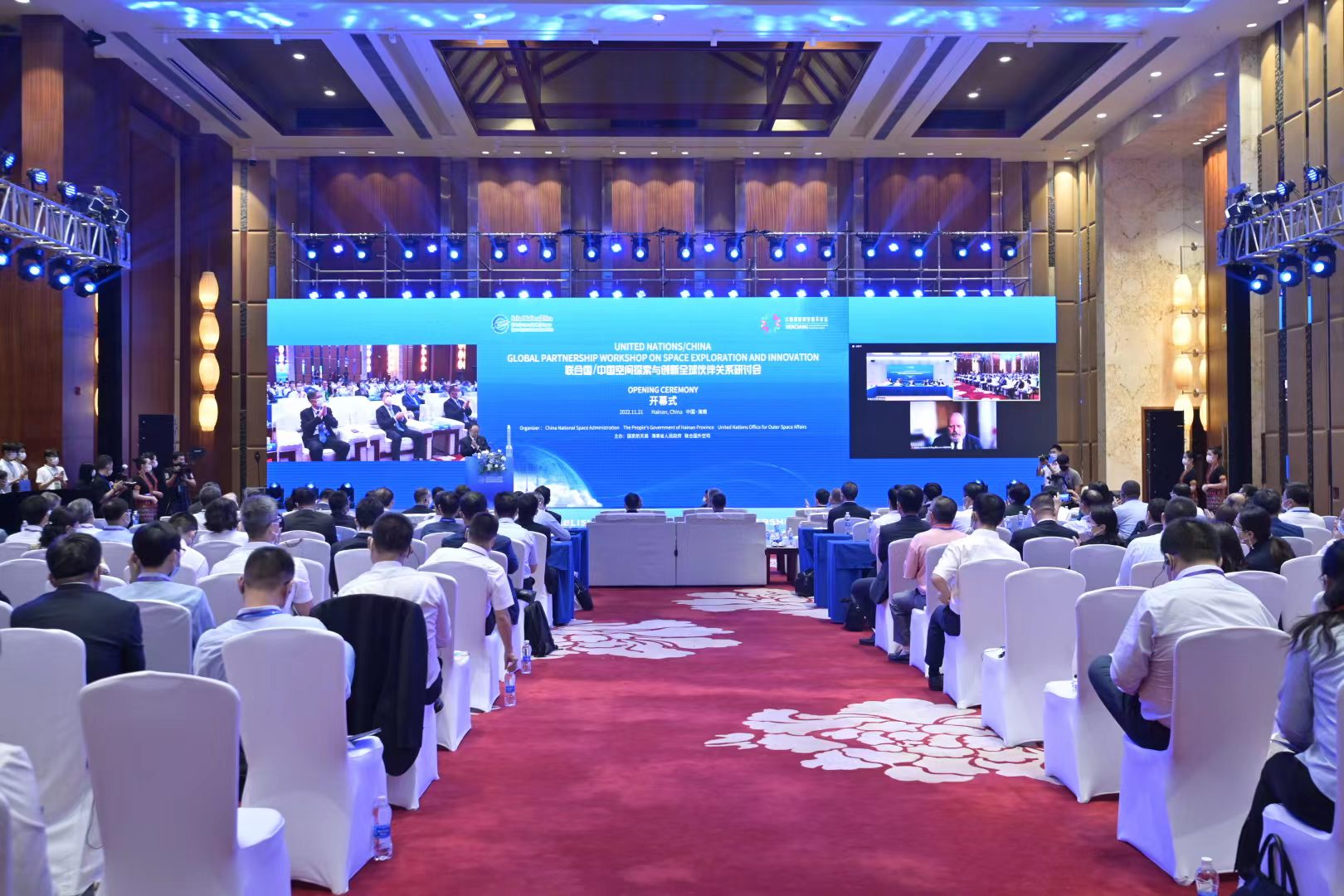Space Exploration Needs More International Cooperation

United Nations/China Global Partnership Workshop on Space Exploration and Innovation opens in Haikou, Hainan province on November 21, 2022. (PHOTO: China National Space Administration)
Edited by WANG Xiaoxia
China is willing to work with all countries to strengthen exchanges and cooperation to jointly explore the mysteries of the universe, make peaceful use of the outer space, and promote space technology to better benefit people around the world, Chinese President Xi Jinping said on November 21 in a congratulatory letter to the United Nations/China Global Partnership Workshop on Space Exploration and Innovation.
At the workshop, China issued an action statement on promoting further international cooperation in space technology and exploration, within the framework of the United Nations.
In recent years, China has made remarkable progress in space exploration and regularly carried out missions, including the launches of Chang'e lunar probes, the Mars probe Tianwen-1, solar exploration satellite Xihe, as well as the construction of the country's space station, while a Moon landing is also on the agenda.
These missions have continuously deepened people's understanding of the universe, while space exploration-related technology has comprehensively improved the efficiency of various industries, spinning off into benefits for humans.
"In the complex realm of space exploration, international cooperation will undoubtedly be the best practice for success," said Niklas Hedman, acting director of the United Nations Office for Outer Space Affairs at the workshop on November 21.
On the same day, China launched an international satellite data and application cooperation center, along with the BRICS center for remote sensing satellite constellation data and application (China) in Haikou, Hainan province.
Next year, international science payloads will be launched to get into China's space station for experiments, and the space station will be open to international astronauts, said the China Manned Space Agency on November 28.







